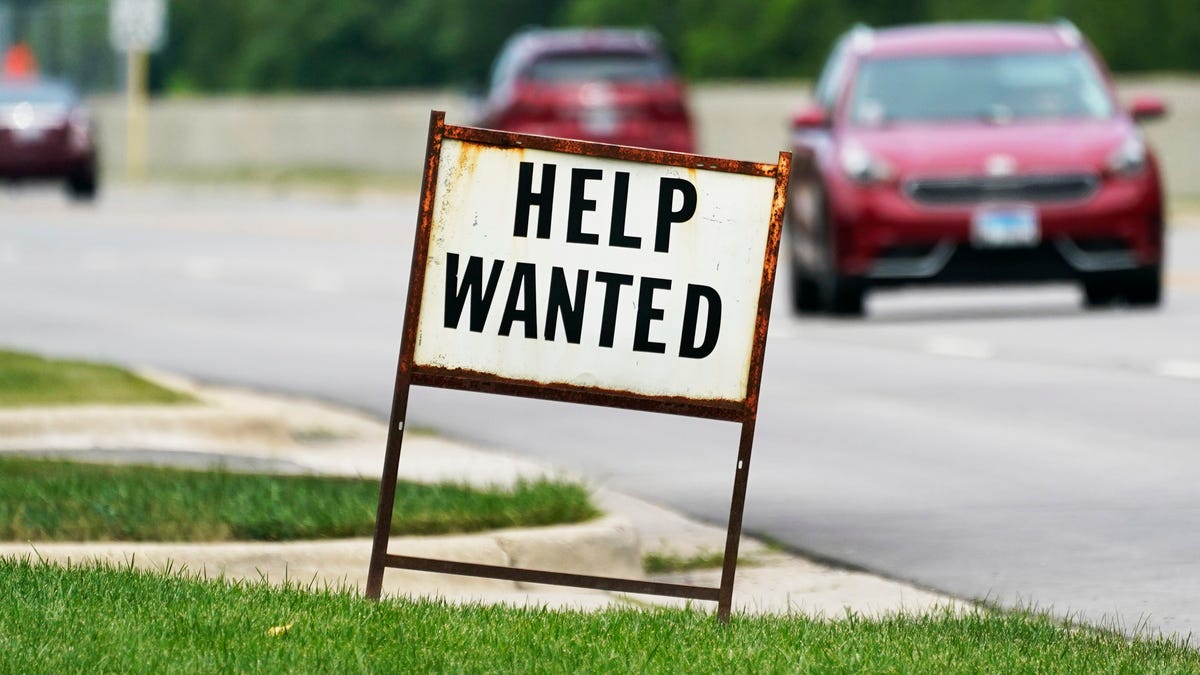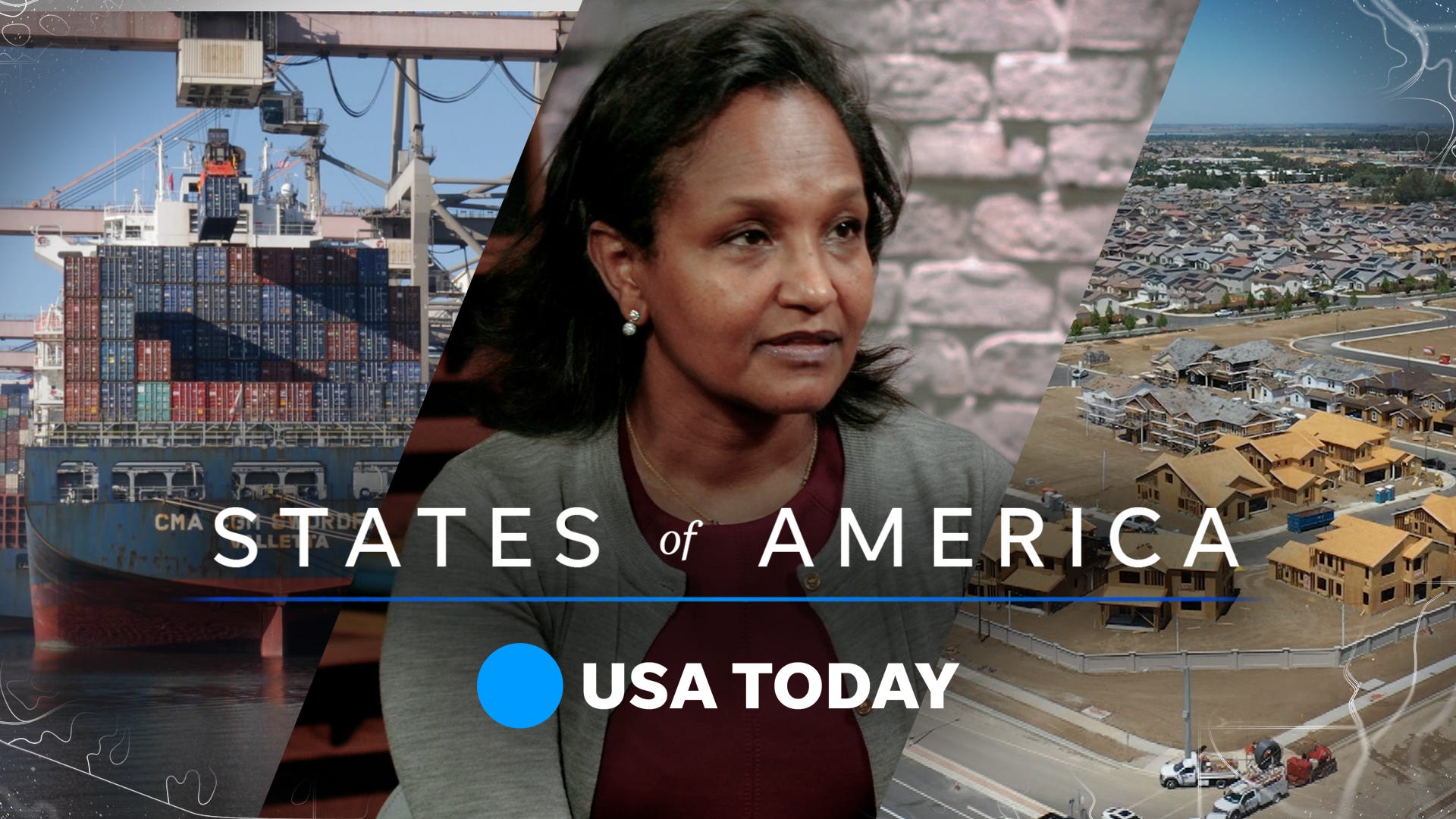

The Fed raising interest rates could lead the economy to a recession
Georgetown Professor Nada Eissa explains why she believes the Fed’s actions to get inflation under control will likely lead to a recession.
Andrea Kramar and Yasmeen Qureshi, USA TODAY
U.S. job growth slowed for the second month in September as employers added a still-solid 263,000 positions, signaling that high inflation, rising interest rates and a softening economy are finally dinging the resilient labor market.
The unemployment rate fell from 3.7% to 3.5%, reclaiming a 50-year low, the Labor Department said Friday. But that’s largely because 57,000 Americans left the labor force, which includes people working or looking for jobs, even as payrolls expanded.
Economists surveyed by Bloomberg had estimated that 250,000 jobs were added last month.
But the share of adults working or job-hunting edged down from 62.4% to 62.3%, leaving it well below the pre-pandemic level of 63.4%. The labor force participation rate generally had been rising despite a spring pullback and advanced sharply in August as workers returned to a sizzling labor market after caring for children or staying idle because of COVID-19 fears.
The dip last month suggests labor shortages could persist and push pay increases higher. That likely would further fuel inflation that’s just below a 40-year high. The drop in participation could help convince the Federal Reserve to approve another outsize interest rate hike in early November.
The job market has been remarkably buoyant this year, notching average monthly gains of more than 400,000 despite a shrinking economy, soaring inflation and the Federal Reserve’s aggressive rate-hiking campaign to tame the price increases.
That’s partly because the pandemic spawned widespread worker shortages, leading many companies to hold off on layoffs and even push ahead with hiring plans so they aren’t caught flat-footed when activity rebounds.
But many economists now believe the Fed rate hikes will tip the nation into a recession next year and the uncertainty is starting to take a toll on hiring. Payroll gains slowed from more than 500,000 in July to about 300,000 in August.
During that period, job openings – a gauge of future hiring — fell sharply from a near-record 11.2 million to a still robust 10.1 million. With 1.7 vacancies for every unemployed person, workers still wield bargaining power. But that’s down from two openings per jobless workers the prior month.
Initial jobless claims, a measure of layoffs, last week rose to the highest level since late August but remain historically low. Announced job cuts surged 46% last month and employers unveiled plans to hire 380,000 workers, the lowest September total since 2011, according to Challenger Gray & Christmas, an outplacement firm.
Also curtailing employment last month: Employers brought on 1.3 million teens and young adults for the summer season and most returned to school, Goldman Sachs wrote in a research note.
At the same time, worker shortages are still plaguing most industries and many firms have resolved not to lay off employees even as the outlook darkens.
“Companies still don’t want to lose the talent – especially talent with tech skills – that they’ve worked so hard to win,” says Nicola Hancock, managing director of the Americas region for AMS, a talent acquisition and advisory firm. “Even though the U.S. economy is contracting, we are still experiencing the most painful skills shortage we’ve seen in our history.”
The upshot: An unusual split in a cooling labor market, with some employers growing more cautious even as others continue to hire or at least avoid job cuts.
“Hospitality and airlines, for example, remain in catch-up mode having cut deeply through the pandemic,” Hancock says.
Tyler Sebastian, a cook and kitchen manager at a drug and alcohol rehab center in Garberville, California, was told this week the facility is closing.
The 32-year-old isn’t worried about finding a new position, though he is concerned he’ll have to take a pay cut after getting steady raises at the center during his four-year tenure. “There are jobs there,” he says. “I’m confident I will find something.”
Many economists expect the job market to lose steam more rapidly now that the nation has recovered all 22 million jobs lost in the health crisis and high inflation and interest rates are starting to dampen consumer and business spending. Monthly gains will likely fall to about 100,000 by the end of the year, according to Moody’s Analytics.
“Employment growth should decelerate more quickly as employers reduce hiring against a backdrop of a slowing economy and declining corporate profits,” economist Nancy Vanden Houten wrote in a note to clients.
